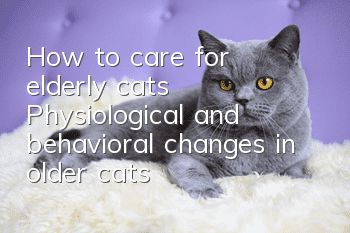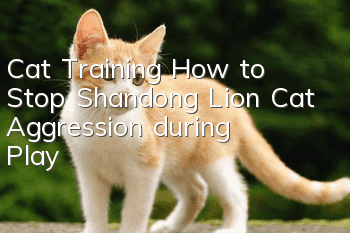How to care for elderly cats? Physiological and behavioral changes in older cats

The lifespan of a cat is less than a quarter of that of a human. Cats over 8 years old are nearly 50 years old compared to humans. The process from youth to old age is very short.
When they get old, how should we get along with them?
Cat and human age comparison chart
1. Physiological and behavioral changes in elderly cats
As cats age, their physiology and behavior will undergo many changes. Physiological changes include decreased sense of smell and taste, weakened ability to absorb fats and proteins, decreased hearing, decreased immune function, decreased skin elasticity, etc.
In terms of behavior, you can obviously find that elderly cats are generally less active and sleep longer. Their appetite has also become worse, and they are no longer willing to spend time letting you play with toys with them. Their psychological uneasiness will become stronger and stronger, and they will become more dependent on you.
2. Diseases that elderly cats are susceptible to
Mainly include hyperthyroidism, intestinal diseases, tumors, pancreatitis, diabetes and kidney disease.
3. How to take care of elderly cats
As cats get older, you may find that it becomes increasingly difficult for them to keep themselves clean, so they may need your help.
Trim toenails
Your cat’s toenails need to be checked every week. Older cats are less able to retract their claws as dexterously as their long nails can get stuck in furniture and carpets. Therefore, regular trimming is necessary. You can learn the correct method from a veterinarian. Once you learn it, you can easily trim your cat at home. Timely trimming can avoid potential risks.
Body cleansing
You may need to use absorbent cotton dipped in warm water to wipe its eyes, nose and anus. And touch the cat's body at any time to check whether there are any lumps or growths. Such examination can facilitate timely detection of diseases and send them to the hospital for treatment.
If you have a long-haired cat at home, you need to use a comb to help comb the hair every day. If there are knots, you need to untie them in time. If you can't deal with them yourself, send them to the hospital or beauty shop to solve them.
Hair ball
After cats enter old age, their digestive systems become more fragile. They are likely to vomit or have constipation after eating hair. At this time, you need to give your cat timely supplements that can help promote the excretion of hair balls.
Cat litter box
When a cat reaches old age,It is also much slower to go to the cat litter box to defecate. It is necessary to promptly change the cat litter box to one with a low threshold to make it easier for the cat to step in and out.
Dental checkup
Regularly check if your cat has red gums, bad breath, drooling, loss of appetite, etc. These may be signs of dental disease. If you have these symptoms, go to the pet hospital for examination and treatment in time.
- Is there a difference between cat paws and dog paw prints? How to tell the difference?
- Does your cat refuse to be groomed? This is very important to her!
- Why is the cat twitching?
- Can cat heart disease be cured? Blood pressure and radiographic examination of cat heart disease!
- If a kitten meows as soon as it's locked in the cage, that's because you're not doing something right.
- Can cats bask in the sun?
- What are the causes of shortness of breath in cats? Shortness of breath in cats should not be underestimated!
- Can cats eat chicken bones? Why?
- What is the problem if a cat has purulent eye droppings in its eyes? What should a poop remover do?
- How to treat cat glaucoma



